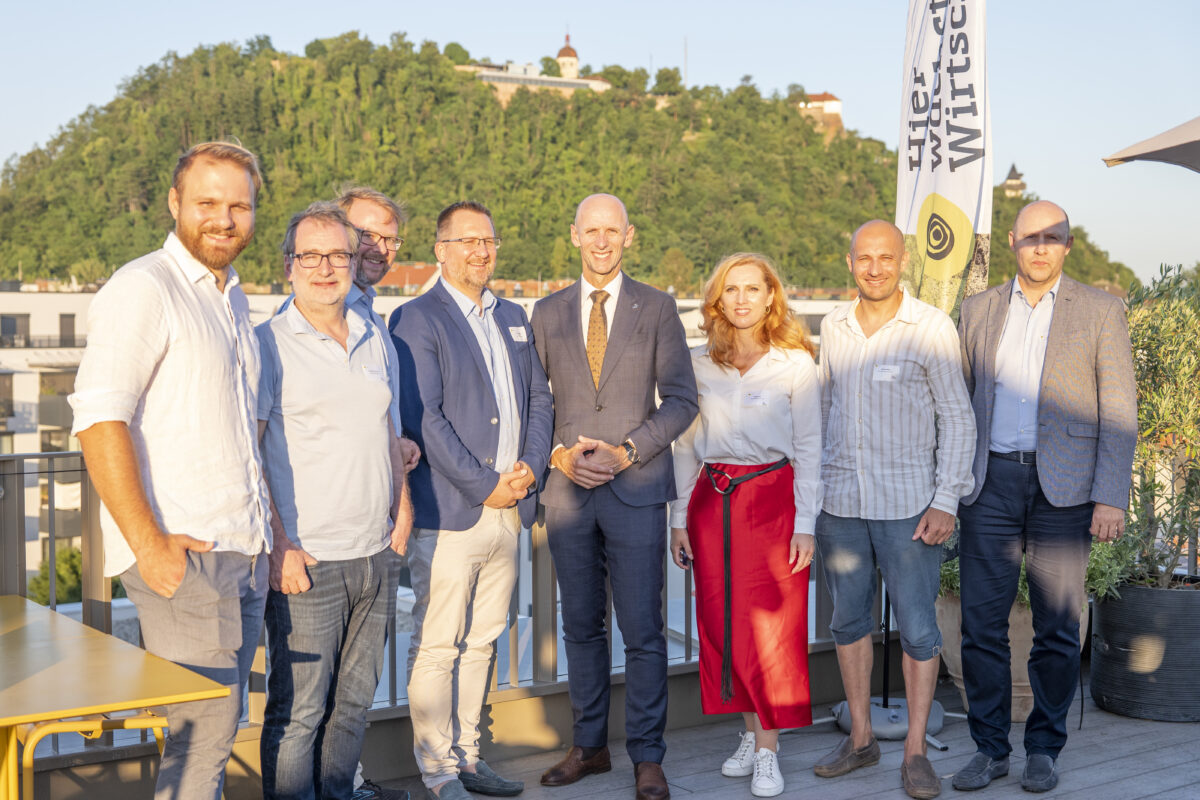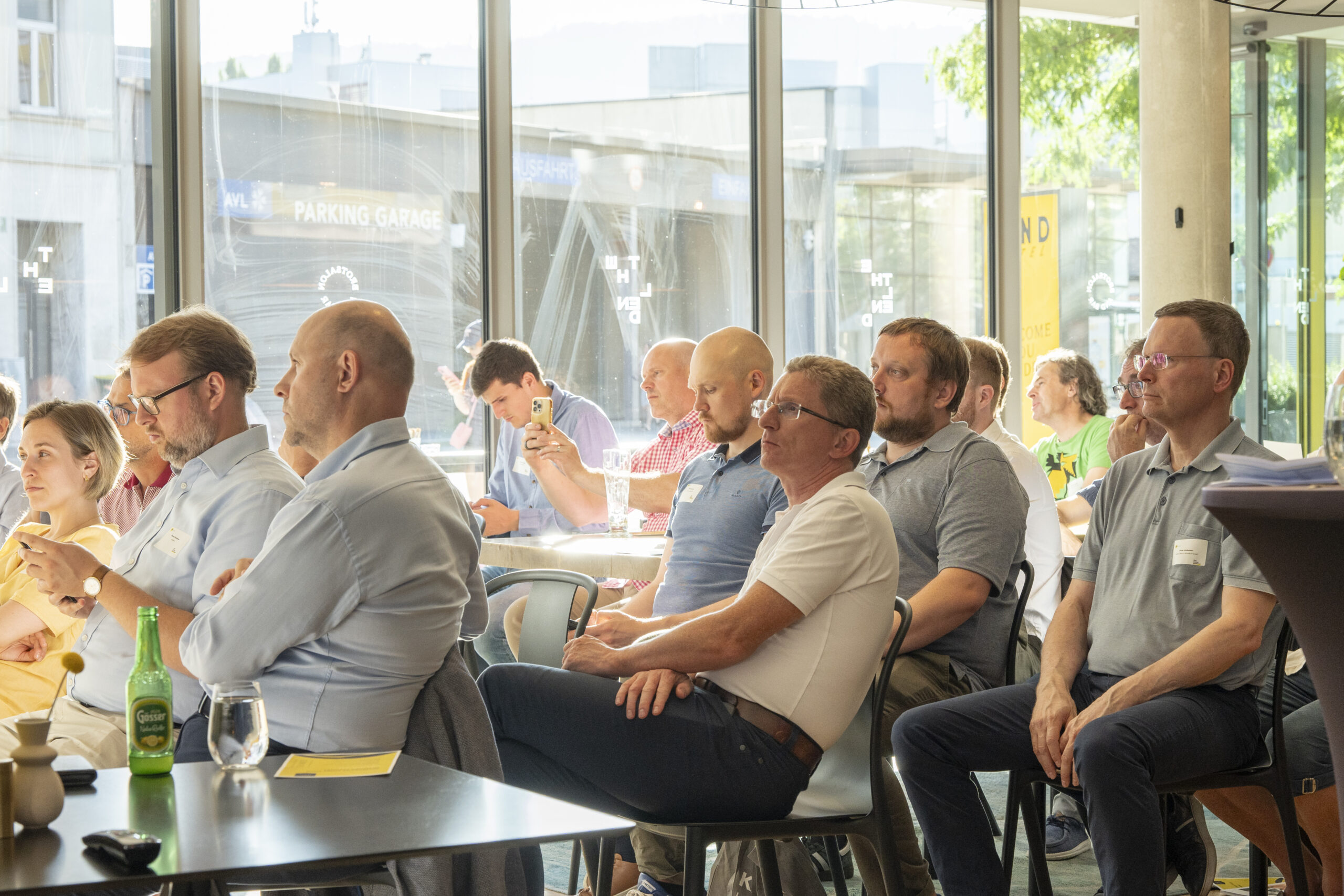As the highlight of the three-day BioRegions Study Tour Styria 2025, an international delegation from seven European countries gathered on July 2 for an exclusive networking evening in Graz. Organized by Bioeconomy Austria, Holzcluster Steiermark and the Bioregions Facility of the European Forest Institute, the evening fostered high-level exchange among leading representatives from politics, research, industry, and cluster organizations. Moderated by Višnja Košćak, the event developed into an engaging evening that highlighted the opportunities European cooperation presents for the sustainable transformation of the wood-based bioeconomy.
Alex Pinter, Managing Director of Holzcluster Steiermark, opened the evening with a warm welcome and emphasized the international significance of the Styrian wood industry, as well as the importance of European networking to ensure competitiveness.
Inazio Martinez de Arano, Coordinator of the Bioregions Facility at the European Forest Institute, provided insights into the platform’s strategic direction. Its goal is to strengthen regional innovation ecosystems in Europe and to promote the bioeconomy sustainably through knowledge transfer and targeted networking.
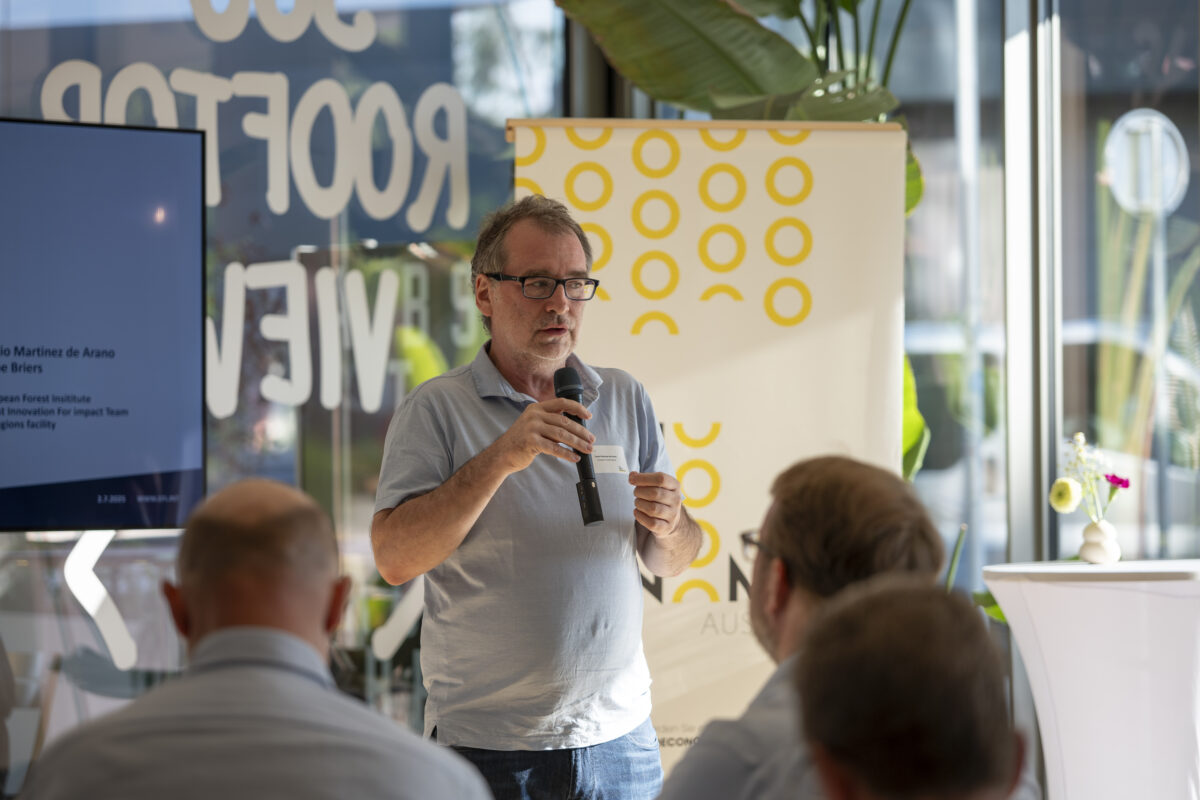
Josef Stoppacher, Chairman of the Wood Industry Division of the Styrian Economic Chamber, emphasized the key role that innovative regions play in the economic resilience and further development of the wood industry. Styria, in particular, can set benchmarks thanks to its strong cluster-based approach. Florian Kamleitner presented the development of Bioeconomy Austria – a platform that translates national bioeconomy strategies into practice with a clear regional focus. Connecting regional anchoring with strategic orientation is essential for effective implementation.
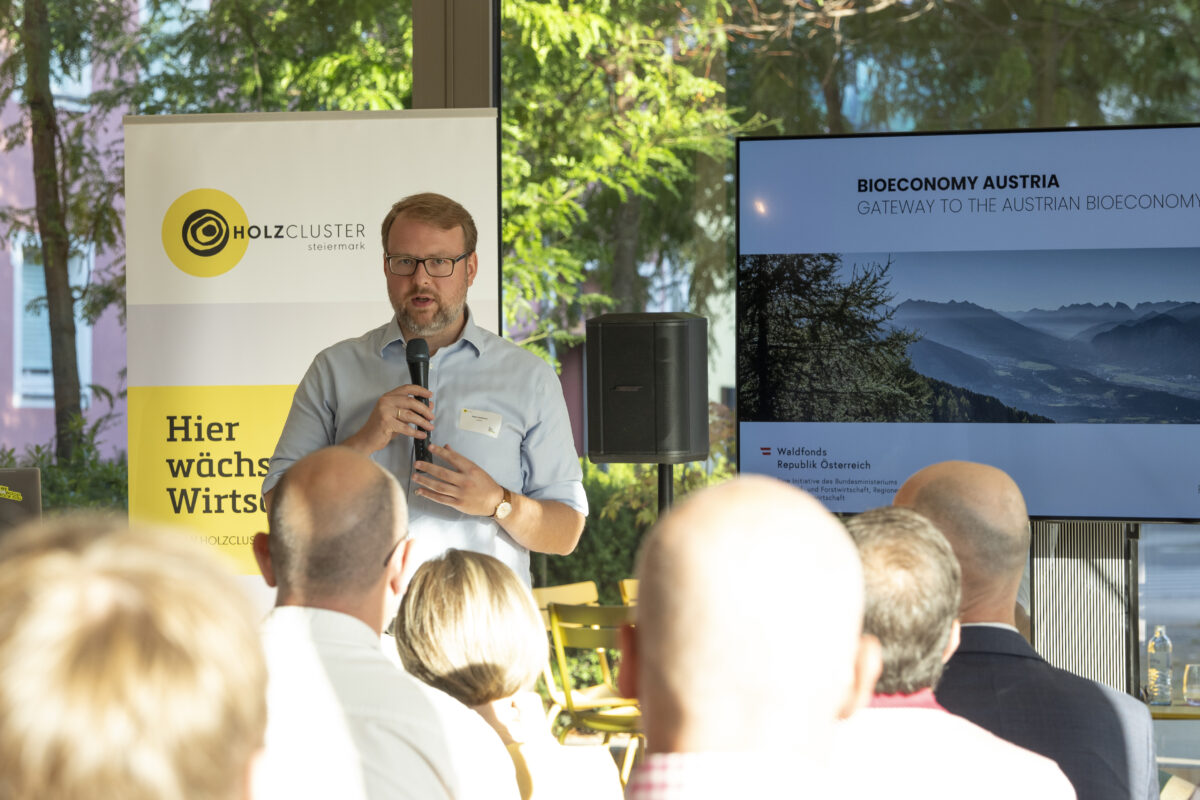
Kilian Silberschneider additionally provided insights into current regional and national activities of the platform, using concrete examples—such as the research projects SerenoWood, BIOCHARm, and the Wood Vision Lab—to demonstrate how innovation projects are being developed and implemented along the wood value chain.
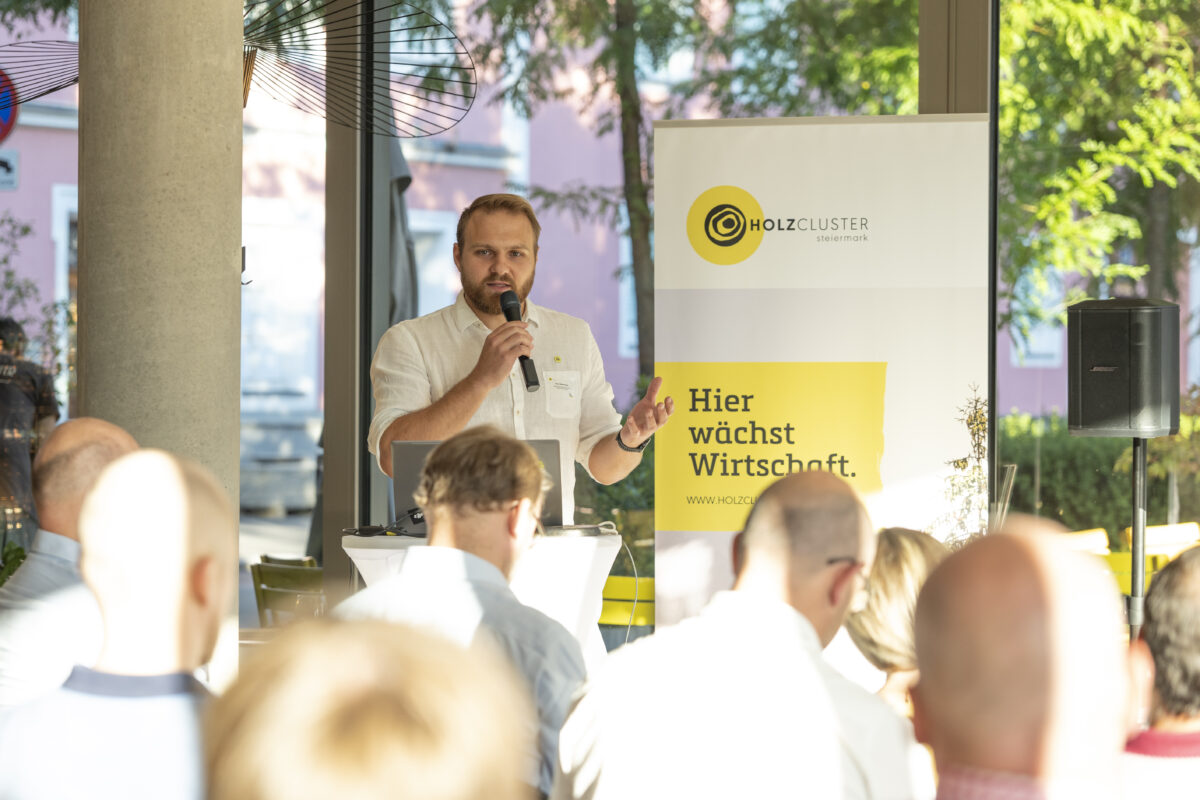
Regional Minister Willibald Ehrenhöfer, responsible for economy, labor, finance, science, and research, highlighted the opportunities arising from cooperation with European initiatives such as Bioregions—not only in terms of access to know-how, but also in positioning Styria as a model region for sustainable construction and smart use of wood as a resource. At the same time, he underlined the importance of Styrian expertise for European innovation.
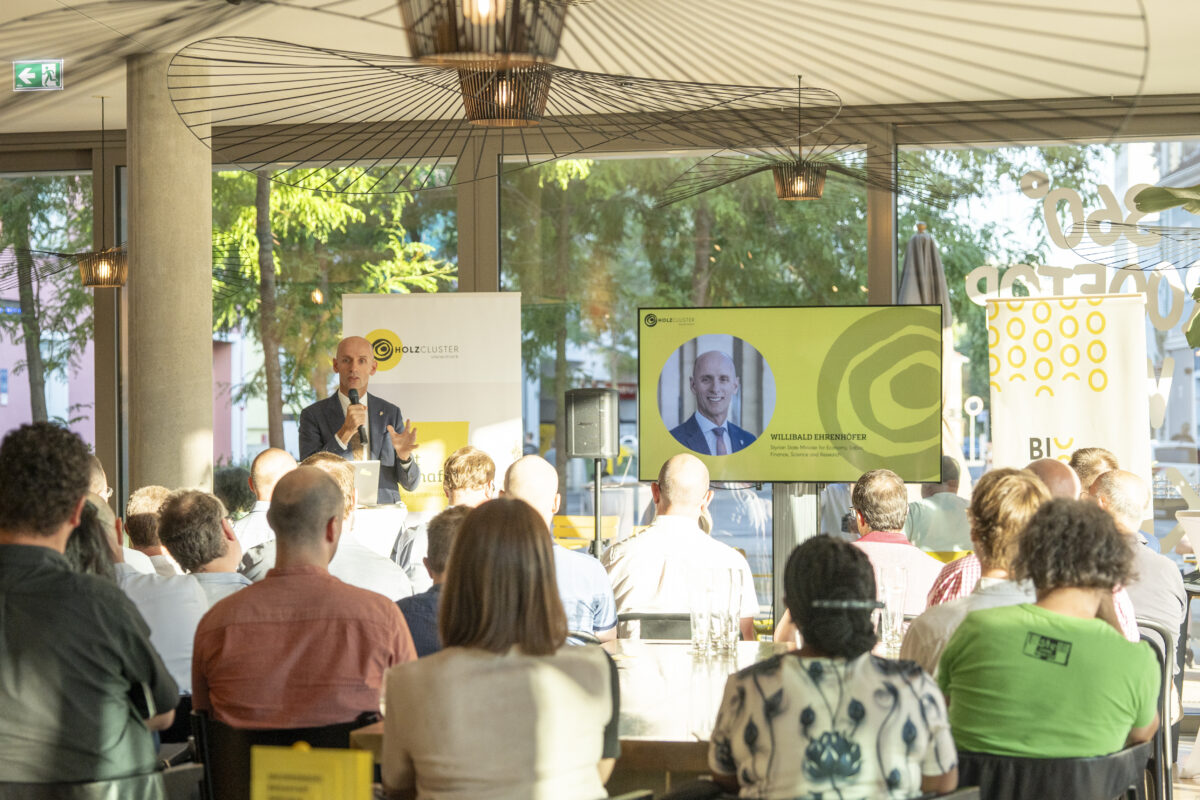
The networking evening marked the grand finale of an intensive tour that included visits to leading companies and research institutions—from MM Holz (focus on CLT), MM Forst (cutting-edge forest technology), TU Graz (wood and timber construction research) to Weitzer Woodsolutions – impressively showcasing Styria’s innovative strength. The delegation also visited pioneering timber buildings such as Reininghaus Q7, Hummelkaserne, the Peter Rosegger Nursing Home, and the Elisabethinen Hospital.
Conclusion
The evening was a strong signal of European unity in the field of bioeconomy and a shared commitment to further develop wood as the sustainable material of the future across borders.
